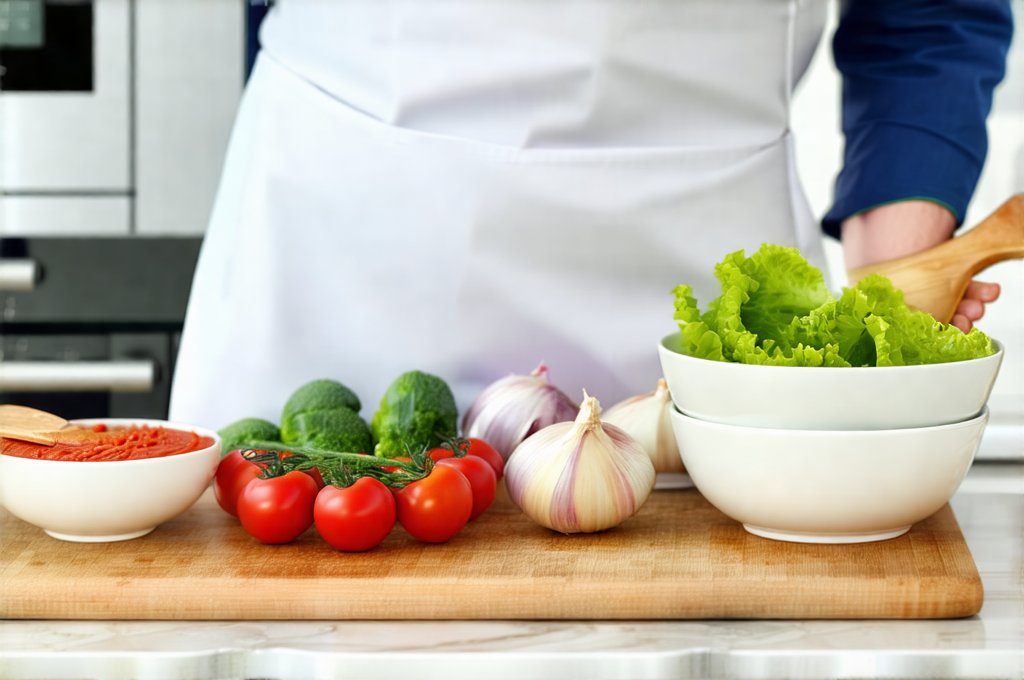Digestion, often taken for granted, is truly the cornerstone of well-being. It’s not simply about breaking down food; it’s a complex orchestration that impacts energy levels, mood, immunity, even cognitive function. When digestion falters, a cascade of issues can arise – bloating, fatigue, skin problems, and more. Yet, many people approach digestion reactively, addressing symptoms as they appear rather than proactively cultivating habits that support consistent digestive health. This article explores the fascinating interplay between everyday kitchen rhythms and robust digestion, offering practical strategies to create a harmonious relationship with food and your body. It’s about building a lifestyle, not just following a diet.
The prevailing narrative often centers around what we eat, but equally important – perhaps even more so – is how and when we eat. Consistent digestive rhythms are built upon mindful habits that optimize the entire process, from preparing food with intention to creating a calm and receptive environment for eating. This isn’t about strict rules or deprivation; it’s about recognizing your body’s natural cues and aligning your kitchen practices accordingly. By understanding the principles of digestive physiology and incorporating small, sustainable changes into your routine, you can unlock a significant improvement in overall health and vitality. You might also want to review common diet mistakes that harm digestion.
The Power of Routine & Ritual
Establishing a consistent daily rhythm around mealtimes is arguably one of the most impactful things you can do for digestion. Our bodies thrive on predictability. When we eat at roughly the same times each day, our digestive system anticipates food arrival and begins preparing – releasing enzymes, increasing stomach acid production, and stimulating gut motility. Irregular eating patterns disrupt this natural process, leading to indigestion, bloating, and potentially long-term digestive imbalances. This isn’t just about timing; it’s about creating a ritual around meals.
Consider the difference between grabbing a quick bite on the go versus sitting down at a table, without distractions, and savoring your food. The latter engages the parasympathetic nervous system – often referred to as “rest and digest” – which is crucial for optimal digestion. This state promotes relaxation, allowing the body to focus its energy on breaking down food efficiently. A simple ritual could involve lighting a candle, playing soft music, or taking a few deep breaths before eating. These small acts signal to your body that it’s time to shift into digestive mode. It’s also important to note foods that feel healthy but secretly trigger stomach acid.
Furthermore, consistent mealtimes help regulate circadian rhythms, the internal clock that governs many bodily functions, including digestion. Disruptions to circadian rhythms can negatively impact gut health and contribute to inflammation. By aligning meal times with your natural sleep-wake cycle – and ideally, eating most of your calories earlier in the day – you support a healthier digestive process overall. This means aiming for breakfast within an hour of waking, lunch around midday, and dinner several hours before bedtime. Can a consistent wake-up time help regulate digestion? It’s worth considering!
Mindful Meal Preparation
The act of preparing food can be incredibly therapeutic and contribute significantly to mindful eating. When we take the time to thoughtfully select ingredients, prepare them with care, and appreciate the process, we cultivate a deeper connection to our food – and ultimately, to our bodies. This isn’t about elaborate cooking; even simple meal preparation can be infused with intention.
- Slow down: Resist the urge to rush through the process. Focus on each step – washing vegetables, chopping herbs, seasoning your dish.
- Engage your senses: Notice the colors, textures, and aromas of the ingredients. This heightened awareness enhances appreciation for the food you’re about to consume.
- Consider seasonality: Incorporating seasonal produce not only tastes better but also aligns with natural rhythms and provides optimal nutrition.
Beyond mindful preparation, the way we handle food matters too. Over-processing can strip away essential nutrients and make digestion more difficult. Prioritizing whole, unprocessed foods – fruits, vegetables, whole grains, lean proteins – supports a healthier gut microbiome and promotes consistent digestion. The same applies to chewing: thoroughly chewing your food before swallowing is the first step in the digestive process. It breaks down food into smaller particles, making it easier for enzymes to work effectively. Aim for 20-30 chews per bite. Be aware of everyday foods that inflame the lower esophageal sphincter, too.
Hydration & Digestive Support Beverages
Adequate hydration is fundamental to healthy digestion. Water helps soften stool, preventing constipation and supporting the movement of food through the digestive tract. Many people mistake thirst for hunger, leading to unnecessary snacking. A good rule of thumb is to drink water throughout the day, rather than chugging large amounts at mealtimes. Sipping on warm water upon waking can stimulate digestion and rehydrate the body after sleep.
Certain beverages can also actively support digestion. Ginger tea, for example, has been shown to relieve nausea and bloating. Peppermint tea can help soothe digestive muscles and reduce gas. Chamomile tea promotes relaxation, which is essential for activating the parasympathetic nervous system. However, avoid drinking large amounts of liquid during meals, as this can dilute digestive juices. A small sip or two is fine, but focus on hydrating between meals. Common cold drinks can inflame the esophagus lining – avoid these!
The Importance of a Calm Eating Environment
Our mental state profoundly impacts digestion. When we’re stressed, anxious, or distracted, our bodies shift into “fight or flight” mode, diverting energy away from the digestive system. This can lead to impaired nutrient absorption, bloating, and other digestive discomforts. Creating a calm and peaceful eating environment is therefore crucial for optimal digestion.
- Minimize distractions: Turn off the TV, put away your phone, and avoid engaging in stressful conversations during meals.
- Create a comfortable space: Ensure you’re sitting comfortably at a table, rather than rushing through your meal while standing or on the go.
- Practice gratitude: Taking a moment to appreciate your food – and the nourishment it provides – can enhance mindfulness and promote relaxation.
This also extends to eating with others. Sharing meals with loved ones fosters connection and creates a more enjoyable dining experience. The social aspect of eating can actually aid digestion by promoting a sense of calm and well-being. By prioritizing mindful presence over multitasking, we create the space for our bodies to effectively process food and absorb nutrients. Ultimately, cultivating kitchen rhythms is about creating a loving relationship with both food and yourself – and that’s a foundation for lasting health and vitality. If you’re looking to further refine your kitchen practices, consider how to design a kitchen routine that supports GERD management. Finally, be mindful of surprising household items that can irritate your throat.


















